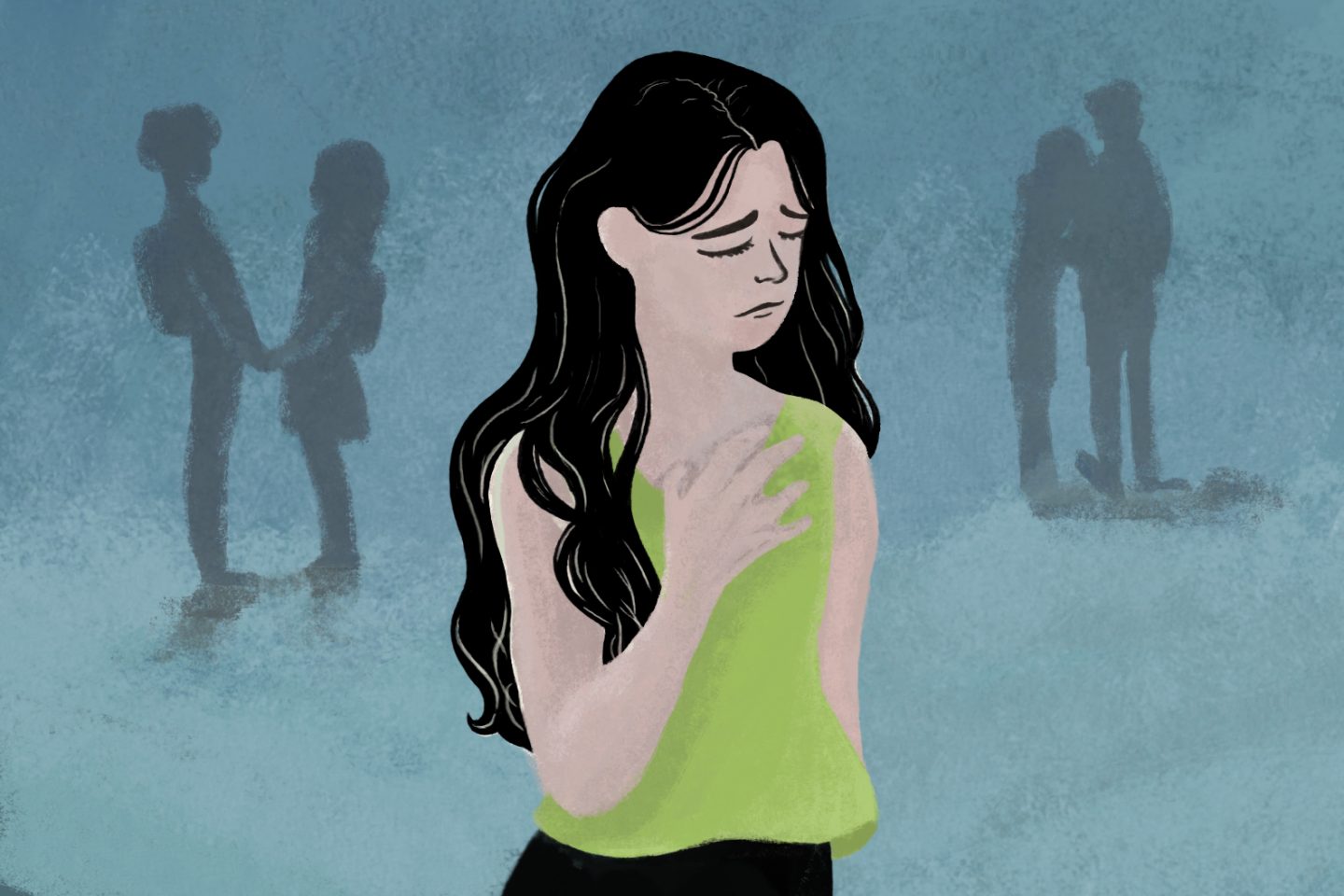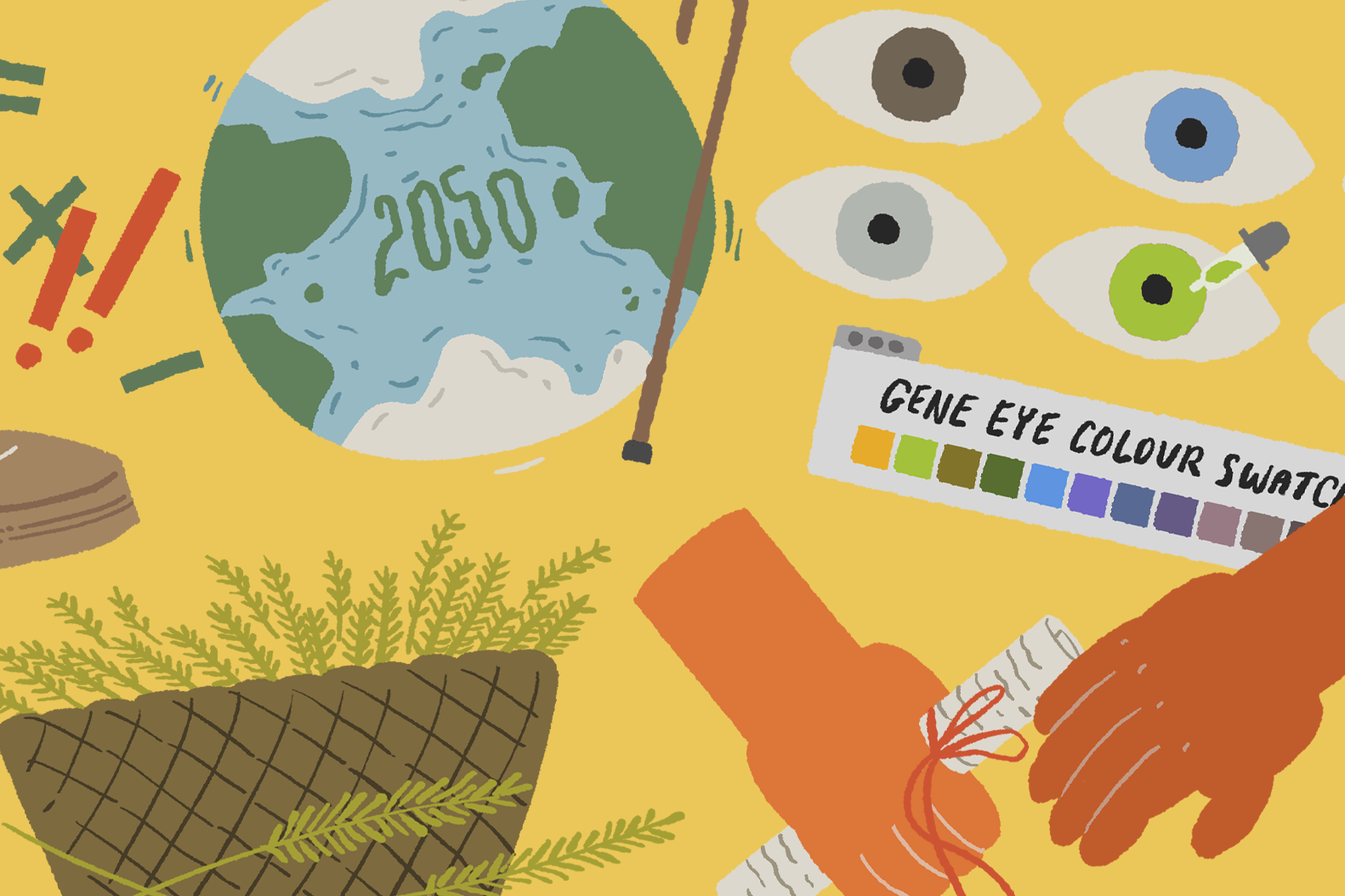“Sometimes when I see kids running around, I imagine them as my own,” Deb remarks. She gazes into the distance through moist, red eyes. Coughing out a few girlish giggles, she quickly recomposes herself. “Sorry.”
The first thing that strikes you about Deb is that she is a bundle of contrasts – a melting pot of intense ingredients which maintain their potency even when mixed into the concoction of her personality.
She’s an amalgamation of composure and cheekiness, hope and despair, faith and doubt, victory and failure, strength and weakness. Each pair in tension, yet dancing in short breaths; each so essential to her identity.
Deborah is in her 40s, and she’s single. But though she has no biological children of her own, she considers herself a mother.
It all started from childhood. Reeling from the pain of having an adulterous father (despite having a “gorgeous” mother), her perspective of marriage and family back then was largely negative.
“I resorted to a lot of self-harm and busyness. I fooled myself into thinking I needed to be busy to survive, while avoiding anything to do with romance or family. I didn’t want the kind of family I was born into.”
Everything changed when she received Jesus at 15. “I looked at the loving families in church and thought, ‘Wow! I’d really love to have one.'” She tells us of a lucid dream in which she’d lost a child in her womb. “Soon enough I wanted four.”
“I fooled myself into thinking I needed to be busy to survive, while avoiding anything to do with romance or family. I didn’t want the kind of family I was born into.”
Her maternal instincts quickly kicked in.
During a church mission trip to an orphanage in Chiang Mai, she recalls the pivotal moment where she encountered a kid wailing uncontrollably. As she picked the boy up and cradled him, she felt overwhelmed by a profound sense of purpose, privilege and duty to love and care for children, even if they weren’t her own.
Unfortunately, while it’s not unheard of for singles in Singapore to raise kids by themselves, she foresaw problems.
“Children need role models in their lives. Little boys really need fathers.”
Then 24, she was open to the idea of marriage. But while dating opportunities were plentiful (Even till today!, she says, laughing),
things just didn’t work out. “They just weren’t the right people. Most had no idea where they were headed in life.”
This may seem strange to most young people today, but Deb prioritised calling over chemistry. She didn’t want to be yoked with a man who wasn’t walking the direction God called.
Unfortunately for her, it was a call which was – romantically speaking – terribly inconvenient. “When God called me to missions, I struggled for two years. I had this recurring dream of running on a treadmill – until I relented.”
And relenting meant giving up the one “ideal” match for her back then.
“In my 20s, I met this amazing guy: Also a teacher, 4 years older, extremely godly, great character, and we clicked immediately.”
She asks for more tissues before recounting stories of fledging romance and playful chivalries between them.
“Those were really fun times. But I couldn’t run forever. One day over the phone he asked me what I could foresee myself doing in the future. His call was here in the schools. When I told him, even while we remained good friends, we knew it was over.”
The breakup shook her badly. In the aftermath, she complained to her mother, blamed her parents and grew angry with God. “I couldn’t understand why he’d plant dreams in my heart, then not allow me to live them out.”
She struggled with self-worth and what it took to be marriageable.
“I saw that people ‘uglier’ or ‘fatter’ were getting married. So it must not just be about appearance.”
Here’s where, she says, she had to make a “faith choice”. “Either God isn’t good, or He is and I just can’t see it
yet.”
Consciously choosing the latter, she pleaded with God to help her see.
“Most people in my situation see themselves as Abraham or Sarah, but I see myself spiritually as a kind of Hagar. It hasn’t been the easiest path to walk, but at the end of the day I can say that I know the God who sees me – El Roi.”
She ties a great deal of her initial disappointment to a warped theology: “A lot of modern protestant Christianity assumes that God gives us whatever we want,” she says, warning against buying into the picture-perfect ideal painted by our consumerist society, and sometimes even within churches.
“We need to learn is that having Christ doesn’t mean everything will be okay. In our fallenness, not everything we need will be given to us. When you grasp the truth of our own brokenness, and marvel at how God uses that anyway, you will be free.”
“You have to honour God, even if it hurts. I know that if I were married with kids, I wouldn’t be able to do the work I’m doing now.”
To her, life’s many experiences help to mature our faith. “We cannot ‘kid’ all our lives. As with most things, we must eventually learn to ‘adult’, and ‘adult-ing’ requires us to understand that it’s not just about us.”
“What you do privately for others is your act of love for others. What you do in public is your witness to a watching world. And what you do where nobody sees – that is for God.” Any consideration of marriage for her today has to flow with all three criteria, she says.
Finally we ask how she feels about Mothers’ Day.
She’s taken aback, slightly shaken. But the resolve in her eyes tells us she’s processed these thoughts long ago.
Understanding the weight of her life’s call and current responsibilities, she knows that her odds of marrying are slim. “It’s like every year a little of you dies inside. And it’s not just biological.”
But she wholeheartedly embraces her portion, for she’s convinced it’s God’s best gift for her.
“When God positions you influentially, you have to honour that with all the costs involved, even if it hurts. I know that if I were married with kids, I wouldn’t be able to do the work I’m doing now. Besides, given my position and responsibilities, I’d rather be single than mess up the fabric of everyone’s lives.”
She takes heart that her frequent interaction with younger people in school, church, or mentoring networks gives her the privilege of loving and supporting the next generation – just as how she cradled that little boy in Chiang Mai all those years ago.
“I’ve learnt that mothering isn’t just biological, but spiritual, too.
“It’s funny that I’m able to discuss the joys and stresses of parenting with my cell group. With God and His people, we always have family wherever we are.”
Closer to her heart are her primary school classmate’s two young children, to whom she is godmother.
“They’re getting really heavy!” she lets slip another squeaky giggle, before being momentarily distracted by the children still playing outside.
She returns her gaze and warmly smiles.
“But really, the biggest lesson I’ve learnt from them is how to throw yourself fully at something or someone you trust. For me that’s no other than El Roi, the God who sees.”









